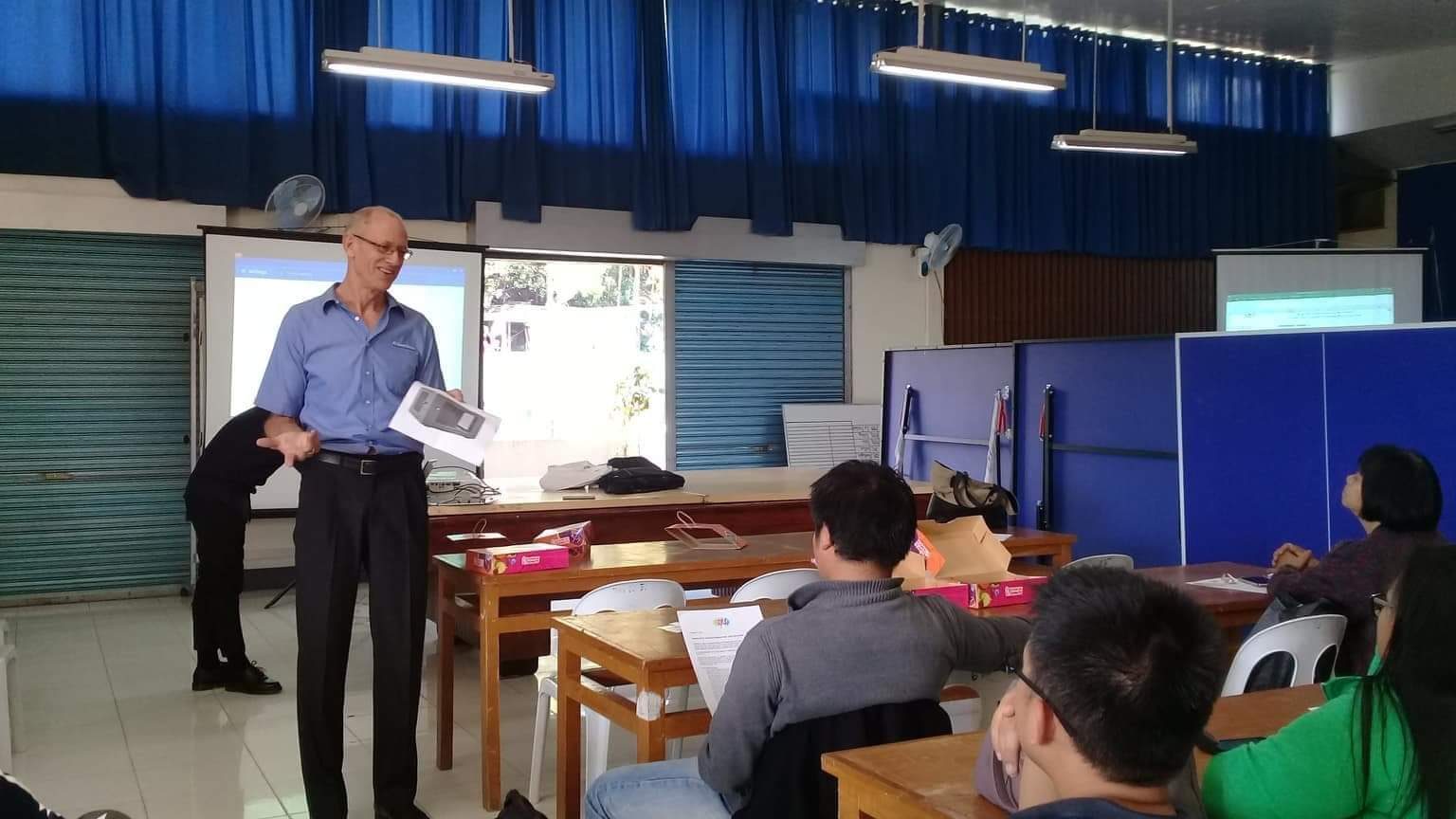SUMMARY
This is AI generated summarization, which may have errors. For context, always refer to the full article.

BAGUIO CITY, Philippines – A solution to the challenges of distance learning in the Philippines, especially during the COVID-19 pandemic, may soon be available.
Chris Hancock and his team from RightSize Education Technologies, Inc have tested their educational app on 30 schools in Benguet, Bicol, and Cebu last year.
Known as SPLAT (short for Supporting Parents, Learners, Administrators and Teachers), this positive behavior recognition app has been used in US schools for 6 years, and Hancock was set to inaugurate it nationwide last March. However, that was when the COVID-19 pandemic hit the world hard.
One of the victims of the pandemic is the educational field. Classes in all levels have been suspended, and even the start of classes is being debated, as the schools are deemed not ready to protect their students. (READ: Students, parents slam DepEd decision to open classes in August)
Distance learning is seen as a bright hope, but this was dampened by the reality that many Filipino students have no laptops or tablets, and many areas in the country have no good internet connections. (READ: [OPINION] What will happen to poor students when schools go online?)
That was when Hancock realized that SPLAT may be the key to the educational sector’s distant learning aspiration.
“We believe that SPLAT is an excellent fit for DepEd (Department of Education),” said Hancock, who remains in California.
“The entire system is designed to leverage the skills and time of the professional educators while acknowledging the true state of the technology infrastructure. In our 30 trial schools, we have witnessed computer labs, but we have not seen technology or network access deployed in most.
“We have been told that the families who attend these schools don’t even have smartphones, much fewer computers. Based on this, many of the ‘best of breed’ learning management systems really won’t work. SPLAT’s functions aren’t really that sexy, but just like plumbing in a home, it’s important,” he added.
The SPLAT app is designed to improve learner’s attendance and reduce SARDOs (students at risk of dropping out) and dropouts. It also engages parents and guardians and improves their communication with the school. SPLAT also reduces data entry time and effort for teachers and gives school heads timely information about the students.
“It’s rare that an individual has the ability to positively affect the lives and futures of 8 million youths a year. With SPLAT, it is likely that a percentage of the learners will get a better education,” Hancock said.
“If only 1% of the parents use the information to make course corrections for the benefit of their children coupled with more applied teachers, then 80,000 Filipino learners a year may exit the system with a better education. More education frequently means less poverty and fewer children.”
SPLAT is government-compliant and has passed all privacy tests of the government, he added.
Teachers can use SPLAT on their desktop or laptop computers, at the school or off-site. They can use their gadgets in the classrooms for fast recording of attendance and grades but they can also record data offline and synchronize them at any hotspot or access point. (READ: [OPINION] Old school to new school: Transitioning PH schools to remote learning)
“We estimate that most teachers will be able to complete the online training in about an hour. The in-line training videos are also available,” Hancock said.
Because families are also included in SPLAT, the family members can share a gadget but they can only see their own data. The families can use their own computers or can log in at internet cafes safely.
Most importantly, SPLAT remains free for the teachers, students, and government.
“My hope is that our operational costs make this self-sustaining so that it can survive in the long run,” Hancock said.
“We have been asked when we plan to offer this to DepEd elementary schools. We certainly want to extend this to them when we are ready. Our current plan would be to offer SPLAT for these schools at the rate of P12 per learner per year. This modest amount would cover our ongoing development and hosting costs. Once we have been successful with DepEd, we might also offer to private schools as well, but that’s a long way out.” – Rappler.com
Add a comment
How does this make you feel?
There are no comments yet. Add your comment to start the conversation.